new posts in all blogs
Viewing: Blog Posts Tagged with: Access, Most Recent at Top [Help]
Results 1 - 25 of 103
How to use this Page
You are viewing the most recent posts tagged with the words: Access in the JacketFlap blog reader. What is a tag? Think of a tag as a keyword or category label. Tags can both help you find posts on JacketFlap.com as well as provide an easy way for you to "remember" and classify posts for later recall. Try adding a tag yourself by clicking "Add a tag" below a post's header. Scroll down through the list of Recent Posts in the left column and click on a post title that sounds interesting. You can view all posts from a specific blog by clicking the Blog name in the right column, or you can click a 'More Posts from this Blog' link in any individual post.

By: Jessamyn West,
on 6/22/2016
Blog:
librarian.net
(
Login to Add to MyJacketFlap)
JacketFlap tags:
harvardbusinessreview,
hativedocs,
hbr,
access,
copyright,
accessibility,
imls,
porn,
stanford,
dpla,
tilt,
Add a tag
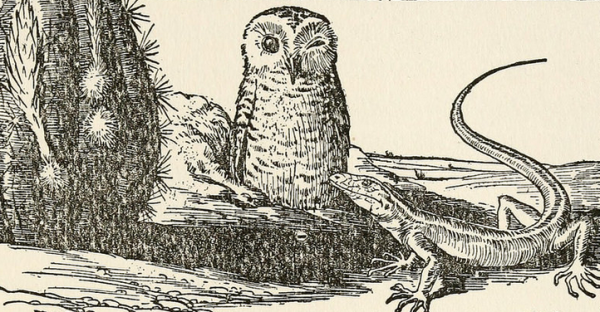
Before I forget, I’ve actually started a Tiny Letter, also called TILT though it’s a bit more essay-ish than these posts. Subscribe if you like this sort of thing in your inbox. Infrequent messages, well-designed and lovingly delivered.
Been thinking about the workplace a little this week. Here’s my top five.
This isn’t about libraries but it’s a thing many librarians should read. Why it’s better for a workplace to avoid a toxic employee over hiring a superstar. The Harvard Business Review lays it out. We in libraries all know it, but this is science to support our many feels.
I really wish the DPLA would mix up their front page a little but I did learn about their new Source Sets from our local Vermont contact when I was at VLA. Curated primary source documents with teaching guides and links to more information. Here’s one on the food stamp program in the US.
Stanford University Libraries puts out a useful annual Copyright Reminder document for faculty and staff. Their new one is out and outlines key copyright issues for 2016.
Being dedicated to accessibility should also include knowing how to find useful things for our patrons that our libraries may not have. With this in mind, it’s worth making you aware of PornHub’s launch of described audio of their most popular videos. You can find it by searching for the “narrated” tag. An earlier web project called PornfortheBlind.org is still online as well.
Very exited to see the results of the IMLS funding to help the Indigenous Digital Archive get up and running. You can follow their Twitter account to stay abreast of developments.
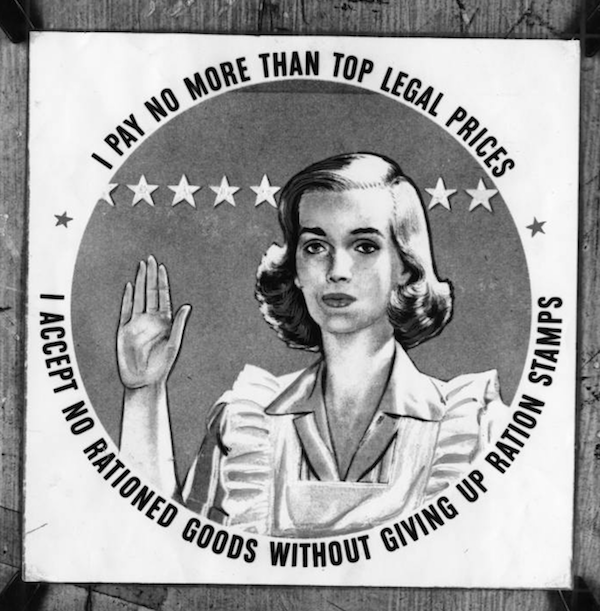
I’ve been refining my library talks lately. The one I’ve given a few times over the past year has to do with the 15% of Americans who still don’t use the internet (no phone, no home internet, no work internet, nothing). How do we work on this issue? Part of the good news is that the new Lifeline Program guidelines from the FCC do include “digital inclusion” (that is, making sure people can use the tools not just have access to them) as part of what the program is supposed to accomplish. This is good. And people have access via their libraries. This is also good. But some of what needs doing is creating a safe place where people can learn technology without being harassed by messages of hazards and pitfalls and social gaffes, often perpetuated by people trying to sell you something. And this messaging starts with us, librarians and educators and people who see these 15% as part of our daily lives. Positive messaging is more important than we give it credit for. This talk goes into detail about ways to do that and important things to think about in our own speech.


By: Jessamyn West,
on 3/21/2016
Blog:
librarian.net
(
Login to Add to MyJacketFlap)
JacketFlap tags:
access,
webinar,
ce,
Add a tag

So in the past month I’ve done something I swear I would never do. And I did it twice. I’m taking about webinars. I swore them off in 2008-ish when I did one that was an end-to-end hassle of software, hardware and personal communication. I felt underutilized and underpaid and definitely didn’t feel like I got my message across effectively. A lot has changed since then. Software has gotten better and I’ve gotten a bit better at working with whatever I’m given. Here’s a little rundown on the two events.
First talk was for NJLA, a little virtual keynote talk about Open Library. We used Adobe Connect software which was pretty straightforward to use even though it meant transferring my Keynote slides into PowerPoint. I got to give a talk, keep up with a chat window and answered questions afterwards. I thought it went well and I got to talk about Open Library to a lot of people without leaving my house. The talk is archived for NJLA members but otherwise not available online. Since I’ve been talking about Open Library a lot lately I’ve made a landing page for the various talks I gave.
The second talk was more complex as it was part of a multi-hour event called Library 2.016 with a subtopic called Privacy in the Digital Age. This one used Blackboard’s collaborate software which was a bit more of a hassle (could not use my presenter notes at all, had to read my talk from my laptop at home) but did allow for recording of the entire event so it could be played back, chatroom at all. My talk was short, twenty minutes, and then we had a brief Q&A session. The sponsor of the event, San Jose State University’s library school, made the odd choice of not making links to the recordings or the schedule of the event available to people who didn’t register. However, the link to the recording is a public link, so if you want to hear my talk, you can do that here. I’ve also put my notes and slides online in the usual place.
In both cases, the webinar format worked decently even if the software was a little clunky to get to know. Unsurprisingly, the trickiest issues were the human decisions that went into how to run the webinars, not the actual software or hardware. IU had a decent enough time and am going to consider maybe doing another webinar before another eight years pass. Big thanks to Allen McGinley and Steve Hargadon who made both events happen.

This has been an odd year. Not only am I teaching college as my major job now (HTML and CSS, but I’m an adjunct so I swear I won’t be making a thing about it) but I’ve been doing a lot less of the usual talk circuit talk stuff. I just got back from CLA (California Library Association) which was a totally great time. I gave two talks (a major talk and an Ignite session which is pictured here) and won at Battledecks which was a dream come true. I enjoy the Ignite format and I’ve give three Ignite or Pecha Kucha Style talks this year.
– One about Open Library that I gave at VLA
– One at NELA about the Vermont Passport Program (and I swear I will write an article about it real soon now)
– The last one about porn driving technology adoption which is not only true it’s an amusing talk topic. That was for the CLA After Dark part of the program at a specific Ignite session called the Haters Ball including suck topics as I Hate Library Tours And You Should Too.
I also spoke to my local Rotary club about the Digital Divide and got a good conversation started in my community about what we can be doing to help the people who need help. This is all coming on the tail of some aggravated shoulder stuff that’s been keeping me away from the keyboard for the past few months except when necessary (read: for work) which is finally getting resolved. So hey how are things?

Reference question of the day was about finding public domain images. Everyone’s got their go-tos. If I am looking for illustrations or old photos specifically I’ll often use other people’s searches on top of the Internet Archive’s content. Here’s a little how to.
1. Check the Internet Archive Book Images feed on Flickr. What I often do is search (which finds the words that surround the images) and then click straight through to the book (which is always linked in the metadata) and then fish around. For example…
“Oh this photo is interesting”
https://www.flickr.com/photos/internetarchivebookimages/14598293148/
“Here are all the photos from that book”
https://www.flickr.com/photos/internetarchivebookimages/tags/bookidwgcricketingremi00grac
Book is readable here
https://archive.org/stream/wgcricketingremi00grac/wgcricketingremi00grac#page/n253/mode/1up
Internet Archive page is here
https://archive.org/details/wgcricketingremi00grac
I’m more used to the Open Library interface which is a different front end on the same content for the most part, it’s here.
https://openlibrary.org/books/OL22896607M/W.G._cricketing_reminiscences_and_personal_recollections.
More by Internet Archive on cricket or Open Library on cricket
https://archive.org/search.php?query=subject%3A%22Cricket%22
https://openlibrary.org/subjects/cricket
The trick, I’ve found, is to try to get as close to 1927 as possible because you’re likely to have the best illustrations and still be out of copyright. Older books don’t have good illustrations because the technology was not there yet. Enjoy!

I somehow managed to screw up the hashtag for my Connecticut Library Association slides so they’re at librarian.net/talks/cla15 instead of findable collocated with the CTLibs15 tag. I’ve rectified that here. I took some time off from public speaking in the last six months. Wanted to get some new ideas percolating. Was doing more writing and less speaking andtrying to do more listening. It was useful. I’m now back around. I filled in for a speaker who cancelled lateish at CLA last month in Groton CT and I’ve got a few more speaking gigs coming up including another CLA in California later in November. I’ve never spoken at that conference before and I am excited.
So here are my slides for my talk that I gave in Connecticut. Unlike past talks, I didn’t make a list of links to go along with it because I felt like most of them are Googleable if you need them (and I was pressed for time). Title, which I love, is Attitude: How to bring the empowerment divide by being more like Vanilla Ice. Enjoy. Feedback welcome.
It could have been the Avengers of librarianing. All these powerhouses working together to help increase low-income childrens’ access to good reading material. But I don’t think that’s how it worked out. Here are my thoughts on last week’s press releases about this new set of programs. Written for The Message.
Aren’t libraries already doing that?

By: Jessamyn West,
on 4/15/2015
Blog:
librarian.net
(
Login to Add to MyJacketFlap)
JacketFlap tags:
bbw,
alaoif,
medium,
nationalibraryweek,
whitehouse,
spacex,
ala,
access,
netflix,
Add a tag

This has been a heady National Library Week for many librarians I know and me in particular. There’s been a lot of online agita and, unlike the way these things usually go, some things wound up changing for the better. Here’s a list. Apologies if I link too much to facebooky stuff.
- Someone mentioned that they found Demco’s “Spanish” spine label a bit troublesome since it had a sombrero and a set of maracas (Mexican, not Spanish, and still stereotypical at that) and misspelled español (without the tilde). A few people complained to Demco. Demco listened, agreed, removed the items from their online store. Not all of their multicultural labels are perfect, but it was nice to be heard.
- ALA’s Banned Books Week poster which was put in the ALA Store this week got a lot of pushback. Does the woman look like she is wearing a niqab? What’s the poster trying to communicate? Andromeda spells out well what some of the issues with the poster are. People wrote to ALA. ALA listened. Took a while to respond. Came back with a few posts from the ALA Office of Intellectual Freedom
- Statement on the 2015 Banned Books Week Poster
- How Do We Design a Banned Books Campaign
- Response Concerning the 2015 Banned Books Week
I particularly found some of the crosstalk interesting about whether objecting to a marketing poster was in the same family as objecting to something being in the library collection. I know we can be a mouthy contentious bunch, but given that, some of this discussion seemed to take place on new ground and it was curious to me how much my years in the MetaFilter trenches has helped me manage these sorts of discussions.
- Daredevil is a great show on Netflix about a blind superhero which did not have any descriptive audio which many found ironic. People complained. The Accessible Netflix Project started a petition. Netflix fixed it.
- After my last post about SpaceX, I decided to expand it into an article for Medium which I did with some nice photos and a lot of linking. A few days later, Flickr actually added an option for users to have public domain and CC0 licenses on their photos. This is, to me, a HUGELY great outcome. I wrote another short article about this.
- On a more personal note, Jason Goldman wrote a post on Medium to talk about how he was going to become the new White House Chief Digital Officer. I left a comment on that article talking about how part of getting people involved in civic engagement is helping them to trust the online world (i.e. doing the opposite of everything Healthcare.gov has done). This comment got a nod in Goldman’s next article now that he’s taken office. I am very very pleased about this.
Bonus link the #journalofneutrallibrarianship hashtag is a pretty good time if you like Twitter. And I wrote a nerdy article about research and Wikipedia that I think you might enjoy if you haven’t seen me blabbing about it all over the place for the past few days.
How to lie with Wikipedia
Sometimes people who license their digital content aren’t really thinking it through. They may have something else on their minds or copyright nuance may not be their thing. I think it behooves us copyright advocates and activists to (at least) politely try to push the envelope towards more open content licensing. Here’s the example I enjoyed from today.

This is interesting especially because Flickr uses Creative Commons licensing, but does not use CC-0 which is an intentional choice. Photos from cultural heritage organizations which are in the Flickr Commons have an additional “no known copyright restriction” option that is only available to specific accounts, not any Flickr user. There are many ways this specific issue can be resolved but just the fact that it’s generally a hurdle that has to be overcome indicates that there is still a good role for copyright reform advocates to play. More supporting links: Original article & SpaceX photos on Flickr.
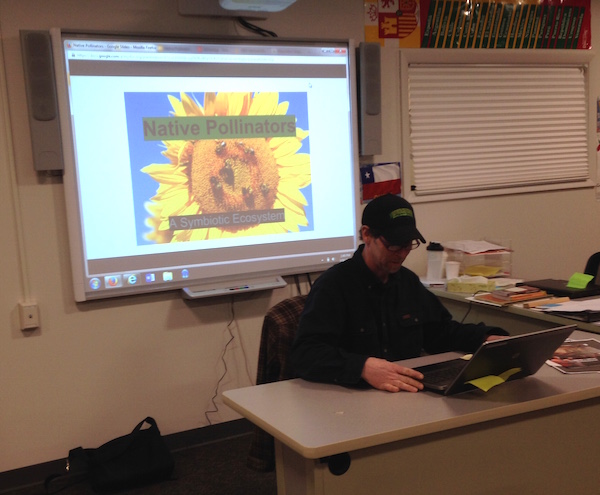 .
.
So since I left MetaFilter almost a year ago, my goal was to spend more time “librarianing” I have a part time job with the Internet Archive running Open Library. I write for The Message a Medium publication, sometimes about librarianship and sometimes not. I write monthly for Computers in Libraries. I do my local technology instruction through the Adult Education program at the local vocational high school. In the past I’ve also done a lot of “How I do it” talks on the road at library conferences. I have not been doing that this month. Instead, I’ve been picking up more local tech instruction work, some paid and some unpaid. It’s been a fun busy week here and I thought I’d outline a few things I’ve done that people might be interested in.
- I taught an iPad class in a “pop up” university in the local town. Some local folks started Bethel University a local skillshare program. I offered an iPad class. People could read the list of classes via a home made WordPress setup and RSVP via EventBrite. I had ten students, most new-ish to the world of iPads and we talked about a lot of iPad features, did some exercises together and I answered a lot of questions. Fun. Free for everyone. I donated my time. I got photocopies for free. The class was held in the library which donated the space. Win. Win. Win.
I taught the last class of my college credit class on integrating technology for teachers at the vocational high school. Through a collaboration with a state university, teachers could take a one-credit continuing education class with me learning how to use the Google Suite of tools for education. We wrapped up with class presentations (ten minute slide presentations demonstrating some of the things we’d learned, Ian discusses pollinators above) and it was a joy to see how much people had learned and seeing them applying it to their own classrooms. I learned a lot and this gig also paid via grant money given to RTCC for teacher continuing education, coordinated through the adult education department.
Drop-in time had a bunch of new computer users who were at the “How do I turn it on?” phase of technology learning. There were a lot of people at drop-in time last week, so I grouped them together and got a few of them started with Google and a few basic commands: back, reload, scroll, click. Every so often when I was helping someone else, I’d hear peals of laughter from that part of the room as they took delight in things I’ve become jaded to such as custom 404 pages.
I also finished a Computers in Libraries article today about data collection and was pleased to see one of my local colleague, Amber Billey a metadata librarian at UVM, get listed as one of Seven Days’ Seven Vermont Women to Watch. If there’s a meta-story to this post it’s that staying local and working on the digital divide in your own backyard has been, for me, as satisfying as being on the road. And a little more calm.
As I mentioned last year sometime, I stepped down from MetaFilter. I’ve been casting around to find a few small jobs that equal one big job. I’m a lucky person in that I’m pretty employable in a general sense. But I also have a lot of smaller commitments to my local job and spending a big chunk of time away over the summer that I’m not looking for regular work per se. I had a gig writing for The Open Standard which vanished in a weird gamer-gate-related political thing (not having to do with me personally, I was just collateral damage) and I picked up some work writing for Medium which is part “platform” and part “community” in a weird way. Anyhow, I like it there so far. I wrote a piece about DRM that I am very proud of. It’s here.
Things That Make the Librarian Angry
I’ll be noodling around with my year-end lists like I usually do but I figured on the off chance you hadn’t seen this, you’d probably like it.
The Vermont Department of Public Service will hold public hearings to gather public input on the final draft of the 2014 Vermont Telecommunications Plan. The Plan addresses the major ongoing developments in the telecommunications industry, including broadband infrastructure development, regulatory policy and recommendations for future action. The Department will hold two public hearings in Orange County on the public comments draft of the Plan prior to adopting the final Plan. Middle Branch Grange, 78 Store Hill Road, East Bethel, Vermont, September 18, 2014, at 2:00 p.m.

I went to this meeting. There weren’t even going to be any meetings in Orange County, the county where I live, until someone showed up at one of the Barre meetings and suggested them. So there were two meetings in Orange County last week. One during the day in Bethel and one in the evening in Strafford. Unfortunately the weather didn’t totally cooperate so there was a local power outage for some reason and a forecast of a hard frost that evening. So a lot of the farmers who would have shown up at this even had to stay home and cover plants and do other things that farmers do when the weather starts getting cold.
I’ve been doing a lot of leisure-time stuff in keeping with my theme this month but today I went to work. I sat and listened to multiple stories of farmers and other neighbors struggling with digital disinclusion. I took some notes and I made a statement. This is the polished version of what I said.
My name is Jessamyn West, I’m a technology educator in Randolph Vermont and I wrote a book about the digital divide. I have three points I’d like to make
- We’re interested in results, not projections. A lot of the data we hear talks about when we’re going to have everyone online, or points to the number of people who have this technology available. I’d like to know why people aren’t online and what we’re doing to work with those people. Saying that most Vermonters have access overlooks the chunk of people with no access who should be the focal point of future build-outs. This report talks about how Burlington Vermonters have a choice of ISPs and overlooks that most of us have almost no consumer choice at all.
- And while we’re getting people access, let’s make sure they all have the same access. People talk about 3G and 4G as if they are the same as cable or DSL. They’re not. They come with bandwidth caps, overage charges, and a lot of concern about impending lack of net neutrality. Similar to how, back when people had dial-up, some people in more remote locations had to pay for the phone calls in addition to having to pay for the service. We’re seeing the same gap now with remote users only having satellite or cellular-based access. We should strive for everyone having equitable access.
- Most important to me is what we call the empowerment or the usability divide. I heard a person earlier say she wanted to get access to the internet so that she could run a website for her small business. Just getting access isn’t going to give her a website. She’ll need resources and likely some human help in order to be able to do that. And where does that come from? It used to be that the digital divide was just “People don’t have access to computers” and then it was “People don’t have access to the internet” and now that most people have access, sometimes only through their public library, we are still seeing participation gaps. These gaps align along the same lines as other structural inequalities like poverty, educational attainment, age, race, and disability status. The people not participating are already facing multiple challenges. We know this. We need to find a way to support those people and not reinforce those inequalities.
The hardest to serve have always been the hardest to serve; the challenge of getting everyone online is going to necessarily mean having a plan for those people as well as everyone else. Thank you.

I really never thought that I would turn into someone who gave “pep rally” type talks, but I was asked to come to the Somerville Public Library and give a short, inspirational talk
to their friends group at their annual appreciation day and was told I could talk about whatever I wanted. As you may have realized by now, this makes my little activist heart grow three sizes and inspires good work (in my opinion).
This is the talk I gave and I am very happy with it.
The library posted this summary of the talk (there’s no audio/video other than some blurry photos) which I think is pretty right on.
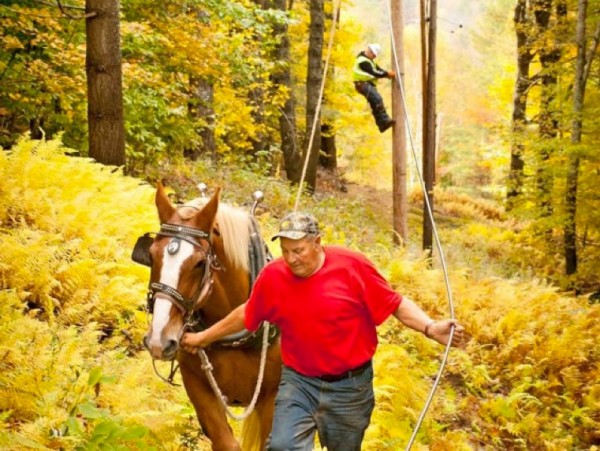
I was at the Lake Superior Libraries Symposium last week talking about the digital divide. The theme was “bridges” which was perfect because “librarians bridging the digital divide” is the subtitle of my book, now three years old. The talk was a variation of the talk I gave in Michigan, plus it had slides. You can check it out here: Bridging the Digital Divide. I had a wonderful time in Duluth and have to thank the organizers for putting on a really excellent one-day symposium.
This image, though it looks super old timey, is actually from late 2012 and is what it look like: two guys laying cable through the woods using draft horses. It’s a very dramatic image just because of the colors but I think it also shakes people up a little “Wow, there really are places in the US that aren’t there yet….” I talked a bit about the culture of learning new things and about our roles as not just teachers but emulators of good technology practices.
And it was timely because I’ve spent this week enmeshed in terrible, confusing, and poorly designed websites as a result of a job shift. I’ll talk about this more in a separate post, but in an effort to get more librarianing in my life, I’ve moved on from MetaFilter and taken a small job at the Internet Archive working for Open Library. This involved a shift in health insurance and possibly some unemployment payments (going from full-time to part-time). And, since this sort of thing is all done digitally nowadays I’ve gotten to experience first hand what it’s like to feel beaten down by technology when you feel like your money or your livelihood is dependent on it.
I am fine, nothing is wrong with me, I have health care and am still well-paid, but the creeping dread that came over me when I was worried “Did I fill this out correctly?” “What does that phrase mean?” “Why isn’t this Submit button working?” and the inability to get timely help or support via the website (I seemed to always start these processes 20 minutes after the phone support ended for the day) just made me frustrated with our culture of bad technology and poor user interfaces and made me sad for people less savvy than me having to navigate these waters and being worried that maybe the problem was them. As always, we have so far to go.
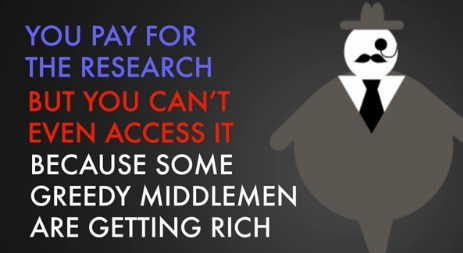
If you paid for it, you should be able to read it. For publicly financed science research, the Obama administration agrees.
I’m aware that this decision wasn’t just because of this We The People petition (which I signed) but it’s nice to think that the petition has an effect. Read the entire memorandum here (pdf) and here is the short post on the White House blog about it. The Association for American Publishers is in favor of this move, in contrast to their strongly worded opposition to the FASTR Act, a bill endorsed by many library associations. Read more about the Open Access to Research movement.
This is yet another “big deal” open access move in what is starting to look like The Year of Open Access.
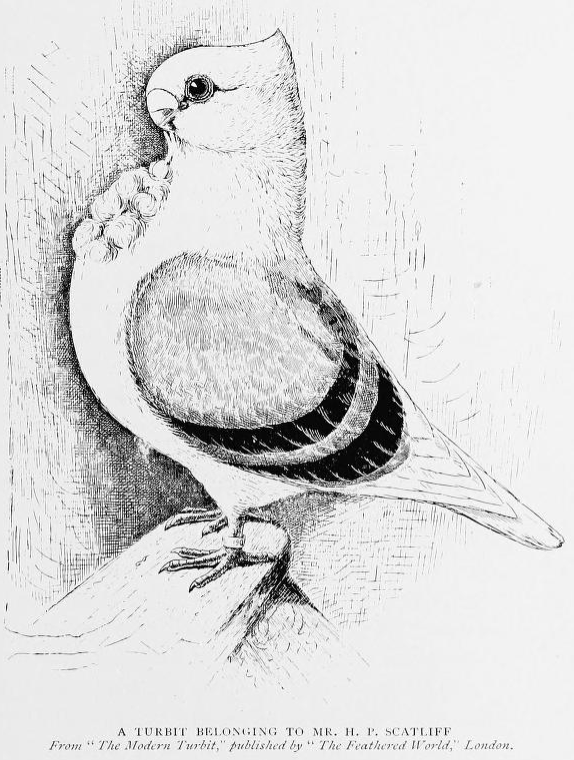
There has been a lot of great writing about copyright and access to our cultural and intellectual history in the weeks since Aaron Swartz’s death. I have been retreading some of my old favorite haunts to see if there was stuff I didn’t know about the status of access to online information especially in the public domain (pre-1923 in the US) era.
I talk like a broken record about how I think the best thing that libraries can do, academic libraries in particular, is to make sure that their public domain content is as freely accessible as possible. This is an affirmative decision that Cornell University made in 2009 and I think it was the right decision at the right time and that more libraries should do this. Some backstory on this.
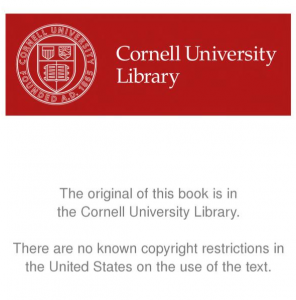 So, if I wanted to share an image from a book that Cornell has made available, I have to check the guidelines link above and then I can link to the image, you can go see it and then you can link to the image and do whatever you want with it, including sell it. This is public domain. The time and money that went into making a digital copy of this image have been borne by the Internet Archive and Cornell University. The rights page on the item itself (which I can download in a variety of formats) is clear and easy to understand.
So, if I wanted to share an image from a book that Cornell has made available, I have to check the guidelines link above and then I can link to the image, you can go see it and then you can link to the image and do whatever you want with it, including sell it. This is public domain. The time and money that went into making a digital copy of this image have been borne by the Internet Archive and Cornell University. The rights page on the item itself (which I can download in a variety of formats) is clear and easy to understand.
Compare and contrast JSTOR. Now let me be clear, I am aware that JSTOR is a (non-profit) business and Cornell is a university and I am not saying that JSTOR should just make all of their public domain things free for everyone (though that would be nice), I am just outlining the differences as I see them in accessing content there. I had heard that there were a lot of journals on JSTOR that were freely available even to unaffiliated people like myself. I decided to go looking for them. I found two different programs, the Register and Read program (where registered users can access a certain number of JSTOR documents for free) and the Early Journal Content program. There’s no front door, that I saw, to the EJC program you have to search JSTOR first and then limit your search to “only content I can access” Not super-intuitive, but okay. And I’m not trying to be a pill, but doing a search on the about.jstor.org site for “public domain” gets you zero results though the same is true when searching for “early journal content” and also for “librarian.” Actually, I get the same results when I search their site for JSTOR. Something is broken, I have written them an email.
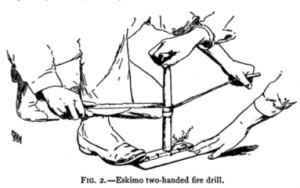 So I go to JSTOR and do a similar search, looking for only “content I can access” and pick up the first thing that’s pre-1923 which is an article about Aboriginal fire making from American Anthropologist in 1890. I click through and agree to the Terms of Service which is almost 9000 words long. Only the last 260 words really apply to EJC. Basically I’ve agreed to use it non-commercially (librarian.net accepts no advertising, I an in the clear) and not scrape their content with bots or other devices. I’ve also seemingly acquiesced to credit them and to use the stable URL, though that doesn’t let me deep-link to the page with the image on it, so I’ve crossed my fingers and deep-linked anyhow. I’m still not sure what I would do, contact JSTOR I guess, if I wanted to use this document in a for-profit project. Being curious, I poked around to see if I could find this public domain document elsewhere and sure enough, I could.
So I go to JSTOR and do a similar search, looking for only “content I can access” and pick up the first thing that’s pre-1923 which is an article about Aboriginal fire making from American Anthropologist in 1890. I click through and agree to the Terms of Service which is almost 9000 words long. Only the last 260 words really apply to EJC. Basically I’ve agreed to use it non-commercially (librarian.net accepts no advertising, I an in the clear) and not scrape their content with bots or other devices. I’ve also seemingly acquiesced to credit them and to use the stable URL, though that doesn’t let me deep-link to the page with the image on it, so I’ve crossed my fingers and deep-linked anyhow. I’m still not sure what I would do, contact JSTOR I guess, if I wanted to use this document in a for-profit project. Being curious, I poked around to see if I could find this public domain document elsewhere and sure enough, I could.
At that point, I quit looking. I found a copy that was free to use. This, however, meant that I had to be good at searching, quite persistent and not willing to take “Maybe” as an answer to “Can I use this content?” I know that when I was writing my book my publishers would not have taken maybe for an answer, they were not even that thrilled to take Wikimedia Commons’ public domain assertions.
As librarians, I feel we have to be prepared to find content that is freely usable for our patrons, not just content that is mostly freely usable or content where people are unlikely to come after you. As much as I’m personally okay being a test case for some sort of “Yeah I didn’t read all 9000 words on the JSTOR terms and conditions, please feel free to take me to jail” case, realistically that will not happen. Realistically the real threat of jail is scary and terrible and expensive. Realistically people bend and decide it’s not so bad because they think it’s the best they can do. I think we can probably do better than that.
DA wrote to ask for help in developing a proposal to send to an agent. As part of the fiction package, the agent was asking for this information.
“Marketing strategies (what will you do to sell your book in cooperation with the publisher?) Increasingly, fiction and non-fiction authors are encouraged to promote their novels themselves through writers’ conferences, book signings, and web sites. We suggest you establish a web site, and you’ll need to create promotional giveaways, arrange your own book signings, or attend writers’ conferences. Think outside of the box.”
Basically, the agent–and ultimately the publisher–want to know a couple simple things. Who do you know, what access do you have to potential readers (online or offline), and what are you willing to do?
Who Do you Know?
Do you know experts in related fields. For example, if a character is a psychologist, do you know any psychologists who can blurb it?
Do you have access to influential people to do Blurbs? Maybe the president of a Romance Writer’s Arkansas Chapter? Do you volunteer for the Mystery Writers group and you’ve met a couple editors or such?
What are you Willing to Do?
Create a website.
Start a blog.
Create a Facebook Fan page.
Speak at writer’s conferences, librarian’s convention, local reading councils.
Do school visits.
Maintain a Twitter presence, a Pinterest board, etc–what social media can you or will you do?
Here, you should include everything you are already doing and how successful you are at doing them. Maybe you do 100 school visits a year, or have 5000 Pinterest followers. List everything you already do and give statistics on traffic.
Then, list everything you plan to do as soon as you have a contract. Perhaps, you already have a website and blog, but you plan to start a Facebook Fan page for the new book. Be positive. Never say, “I hope to. . .” Instead, say, “Nine months before publication, I will ________; six months before publication, I will __________.”
What Access do you have to Readers?
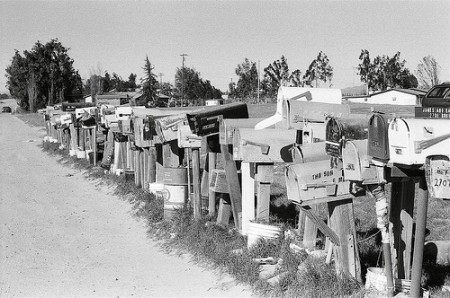
Here, the publisher and agent want to know your online and offline reach. Put audiences you “own” first, such as mailing lists of people who have said they are interested in your career. Then list any places you can reach people. Here are some hypothetical examples:
Through my website, I have a mailing list of 2000+ people who are interested in my career.
My last three GoodReads Giveaways have averaged 562 people signing up.
I am a member of XXX professional listserv which has a readership of 10,000 librarians.
I have been interviewed twice by XXX program on XXX radio, which has a listener base of 5000.
For my last book, I was on XXX TV station for Mother’s Day.
I will be attending XXX convention and will speak to an audience of 200.
Put as much data as you can and spin it as well as you can.
What if you have no online or offline reach?
I doubt that is the case, surely you belong to SOME group that would like to hear about your new book. But if you truly have no audience reach, then do NOT apologize. Just list what you can do and be done with it. The story is the most important thing anyway.

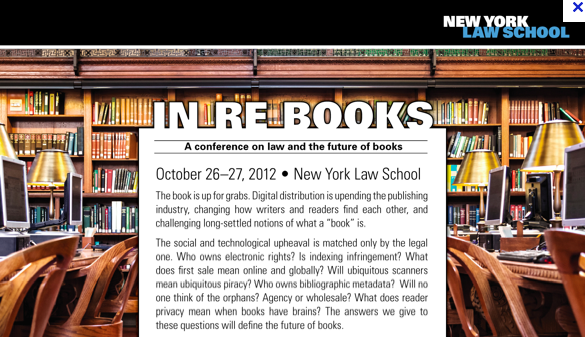
My thoughts are with the folks struggling with power outages and Sandy’s destruction. I left NYC on Sunday morning after attending the In Re Books conference given by New York Law School. I was on the Libraries panel. I learned a great deal about the current state of digital content and the legal structure supporting and/or inhibiting it and got to listen to a lot of very bright people speak. I was honored to be on a panel with author Caleb Crain, Doron Weber from the Sloan Foundation, and Jonathan Band who does technology law and policy work, all well-moderated by June Besek. I did what I always dread other people would do: prepared too much information for a twelve-minute slot. Fortunately I went last and managed to make it work okay but decided to put the full essay here. Here is my short piece which was intended as a cautionary side note to the idea of a digital public library, an idea I am generally in favor of. Title, swiped from a Cory Doctorow article on boingboing “You are a mere tenant farmer of your books”
INTRO
My name is Jessamyn West I live in Randolph VT. I am the director of operations for MetaFilter.com and I work in a rural library and a vocational high school teaching people how to use their computers. Last year I wrote a book called Without a Net, Librarians Bridging the Digital Divide, talking about how public libraries in the US are becoming the de facto social safety net for technology access and instruction at a time when technology skills and access are becoming a necessary part of being an American citizen, an unfunded mandate if you will.
Some of the stuff I’ll be talking about may be known quantities to many of you. I’ll be discussing not just what some of the data is but also why I feel that it matters.
DIGITAL DIVIDE
The digital divide is a catchall phrase that people use to roughly refer to the haves and have-nots. It used to refer to who had computers and who didn’t. Then it shifted to refer more to who had online access versus who didn’t, then broadband access, then mobile access. The general gist is that people who lack access don’t just lack a computer, or broadband, or a smart phone, they lack access to a culture that is swiftly beginning to define a large swath of economic and social opportunities (and economic and social power) in a place that is all but invisible to them. And that this lack of options is self-reinforcing, similar to how poverty is not just a lack of money though it is partly that.
When we start talking about significantly ramping up public access to digital content, particularly cultural content and referring to a digital public library (and idea I am in favor of, by the way) we need to understand the challenges in creating and making available digital content for ALL people, not just those who can afford it and not just those who already know how to access it. Twitter could, for example, have terrible tech support because their business model doesn’t depend on it being usable by or even relevant to tech illiterate users, disabled user, easily confused users, etc.
If our digital public library is truly public, it is for everyone even those who are hardest to serve.
BROADBAND
Keep in mind that 20-ish% of adults in America have no internet at home at all. Even the demographics with the most smart phone penetration (jerks like me 25-44) are still in the 60-70% range, max. And while people are continuing to increasingly get smartphones (with caveats like: bandwidth caps, lack of net neutrality, expensive plans and the fact that they are NOT computers…) home broadband adoption is plateauing. And this lack of access isn’t evenly distributed: it’s disproportionately full of older people, poor people, people with less education or English-speaking capacity, people with disabilities, often people with some combination of these challenges. And the people who don’t have broadband are often some of the library’s biggest customers.
We know *why* people don’t get/use broadband… the IRS and other big government organizations who stand to save a lot of money as people get online more study the heck out of this. People don’t use the internet because they’re afraid (steal your identity, steal your kids), because they don’t see its value or relevance to them, because they can’t afford it, and because they can’t get it where they live. About one in five say that they do know enough about technology to start using the internet on their own, three out of five of them report that they would need help in order to get online. Most telling, only one in ten said that they were interested in using the internet or email in the future. Ever?
So the divides are multiple: 1. economic 2. usability 3. empowerment. (Jakob Nielsen)
Attempts to serve everyone with digital content must address all three of these divides.
BOOKS vs. EBOOKS
In public libraries we can address some of these issues but not all of them. We are the only place to get reliable free internet access AND computer access in America. Historically we’re not selling anything but literacy and intellectual freedom. Things get dicey when we have to pick among platforms and file formats (Kindle? Nook? Ibook? PDF? epub?) even though 73% of libraries in the US offer some type of ebooks as if right now. The Bill and Melinda Gates Foundation in many ways was the best and worst thing to happen to libraries at the end of the last century. Now almost all libraries have public access computers. However, most of them in rural communities did not choose their platform. Important? Maybe.
Things get dicier when the only choices of platforms we have are ones that abridge our patrons’ rights or abilities to interact with their content. As much as it’s a pain buying Large Print copies of books we already have in regular print (a problem technology can solve!just make the cont bigger!), it’s less bad than buying an ebook that has the text to speech option disabled. These sorts of limitations are currently things we push against, said to be a necessary evil aspect of lending ebooks because of how the market operates. However there is no natural law that says this has to be this way. Digital rights management is a market creation.
I have an undergrad degree in linguistics, from before I went to library school. We have a saying that explains a larger principle “The morning star is the evening star” Let me bore you briefly by explaining what this means… Both the morning star and the evening star are Venus (which yes, is a planet) but they’re seen at different times. So the one thing has two names that explain different senses of the thing. So the morning star is the evening star but it also is not.
Ebooks and books are two real world things that refer to one “sense” of a thing. We’ve been living with printed books for so long we have a general social agreement about what they are. At the point at which you are talking about digital content to anyone who is not tech literate, you employ metaphors to explain what is bookish about an ebook and what is not. For people who are digitally divided this is more challenging than for others.
When I’m not working at the small public library in my town (pop. 4500) or teaching computer classes at my local vocational high school I am director of operations for a giant online community called MetaFilter (free accounts for librarians, call me). I work from home. The community I manage is virtual. For the bulk of the people in my town the idea that I could have a real job working “online” is a difficult thing to conceptualize. These people are not ignorant, they just literally have no real world experience with the idea of online being a place. A store, sure, but a hangout? And the library is not, should not be, a store. So starting with that and moving to the idea of (free) books and movies and music being in this place, we have to get a little abstract. What is a book? What is an ebook? What is a digital file? What is digital rights management? And most importantly, why don’t people agree on these things?
Understanding these things is necessary to understanding a digital library. We must decide if it’s appropriate for our understanding to stand in for our patrons’ understanding.
BOOKS & LENDING
But back to books, our stock in trade. Many people who are more plugged into this than me will be outlining the ebook/book divide. In my dream librarian world, a patron could choose from among many digital or non-digital format containers, how they would like their content served and we could deliver it with no loss of service level or quality of content. However we are not there yet.
books vs. ebooks right now
Legally – the right of first sale is under attack and basically doesn’t refer to digital content in the first place. This is a current tug of war between publishers concerned about their business model and libraries/readers concerned about maintaining the values of their institutions in the face of this. The “lending” of digital content is currently not something libraries can do in disintermediated fashion [i.e. there are third party logins and EULAs and privacy policies to contend with] This is suboptimal. It affects not just our quality of service but also our brand and people’s sense of place when they interact with the library.
Socially – social reading-sharing books, annotating books, buying second hand books, seeing when a book was checked out. This is actually a culture that CAN shift very effectively into a digital environment (GoodReads, Library Thing) but we tend to not see that happening with ebooks and lendable ebooks specifically. Why is that?
And there’s the money thing. For the most part, you do not buy an ebook, you license it. The money leaves town and doesn’t come back in the form of second-hand book sales, money to the local book store, heck even employing people in tech services or book repair. These are picky points admittedly, but as someone from a place where Shop/Farm/Buy Local is a rallying cry, we do the math. For every $100 spent locally, $68 returns to the community through taxes, payroll and other expenditures. If you spend that in a national chain, only $43 stays here. Spend it online and nothing comes home at all. All of our libraries’ operating expenses come from grants and taxes of the people who live in the town; it’s fiscally prudent to try to hang on to it.
We need to be mindful about how to make digital content economies valuable to all the people they are by and for.
OUTSIDE THE BOX-ers
There are many people doing innovative thinking along these lines from within the library sphere. I am assuming you know about larger players like Hathi Trust and The Google Books Project and you may even be up to date on the Internet Archive’s work with Open Library. One of the things that all of these ground breaking projects have in common is that, unlike the way most of us operate, they started with an idea and got working and then hammered out the legal issues after the fact. This is a good and bad thing, and deeply concerning to people who are litigation averse. Here are a few other projects pointing in the right direction.
- LibraryBox – Jason Griffey thinks that libraries will do better with digital content distribution if they’re running their own servers on their own networks
- UMich Orphans Project
- BPLs copyright shot over the bow
- Cornell Public Domain
- Flickr Commons
- ORI – owner’s rights initiative – “the fundamental premise that if you bought it, you own it” diverse group including ALA
- Random House “you own it!”
We need to be experimenting with systems that allow us to maximize sharing and minimize hassle for whatever digital content strategies we employ.
FINAL
One of the things that has always hamstrung libraries’ ability to share content has been our local funding versus the increasingly global accessibility of our content. Two public libraries five miles away from each other may have totally different collections and facilities because of their funding base. One library may have access to a specialized database that’s for patrons only while patrons down the street lack this access. And techies know that the reasoning behind that is largely market-driven, that being able to re-sell the same digital content to people over and over is part of the revenue model of these companies even though it’s usually just a password that allows one group in and keeps another out.
It’s easy to define your userbase as the people who are using your things, this is how a great deal of business operates. Don’t like our movie, don’t watch it. Don’t like our soda, don’t drink it. At the same time, this leads to historically underserved people continuing to be underserved.
The big thing about public libraries, why they are so unsexy and why they are so challenging as well as so well loved, is that they are for, literally, everyone. And serving everyone is difficult both in a technological sense which we may have sorted or at least be able to sort, but also in a social sense which we definitely do NOT. So, circling it back to “what should a digital public library of america look like” my response if that it’s truly public it has to be available to and real-world accessible by everyone, the entire public including all the dial-up using, spam-concerned, marginally literate, technologically timid among us all.
People often look at online communities (newspaper comment sections, Reddit, YouTube) and wonder why discussions go so toxic so quickly. And my response being someone with nearly ten years in the trenches of online community management and twice that doing the offline equivalent in libraries and schools is that there’s no incentive for them NOT to be. The public librarian in my town doesn’t just leave the door unlocked, turn on the computers and go back home. She sticks around, setting the tone and enforcing the rules at the same time as shes purchasing books, running programming and caring for the building. It’s the humans that make a library a library and not a room full of books and computers.
If there is going to be something like a digital public library of America, much less ONE digital public library of America, we’ve got to make sure it’s for the entire public. And if there is going to be ONE digital public library of America, a project of which I am in favor, I think it needs librarians.
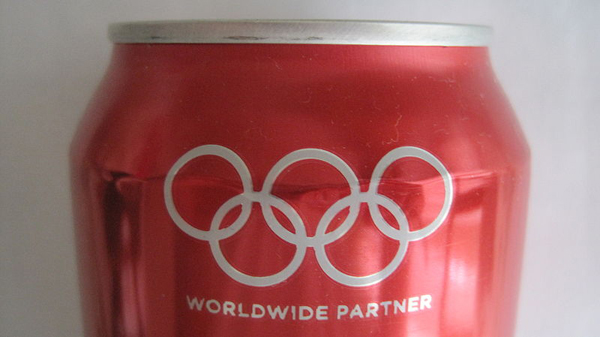
So I like the Olympics. Not like I wait for it all year, but I enjoy the spectacle, fresh-faced athletes, international competition, and an excuse to watch TV with friends. I also enjoy, from a nerd perspective, trivia in the making such as this being the first year that all attending countries have had female athletes on their teams or wondering what Muslim athletes are doing during Ramadan. I’m also fascinated by what I can and can’t see Olympicswise, versus my friends in other countries. Anyone who wants to watch stuff the normal way will have no problem though I do suggest the Easy Read version of the London 2012 site because it’s more straightforward and has less cruft.
So if you’ve been following along, you know that there was a big social media aspect to the opening ceremonies, which had some live tweeting which was already ancient in internet-time by the time the show was broadcast in the US. There was also some controversy concerning some parts of the opening ceremony that were edited out of the US broadcast. I have been sitting at home healing from a sprained ankle so I have been a little more immersed in the meta-story than I might be otherwise.
Anyhow, in my sometimes-role as the internet’s librarian, the question I’ve been seeing a lot is “How do I watch an Olympic thing when I can’t because of $_REASONS?” Now that reason may be because you’re in the US and so you can’t stream the BBC, or because you’re in an African country and don’t have cable, or in the US and allergic to Bob Costas.
It’s not super clear how to do some of these things, and less clear how much end-running these things is problematically extralegal. I will not be addressing the second part, you can consult your own moral compass for that. In any case, I’ve made a little guide which I’ll be updating which help answer some of these questions. The BBC even made two versions of their Opening Ceremonies coverage available, one with the BBC commentary and one without. For people who only saw the goofy NBC version of the ceremony, this English guide to the ceremony (pdf) may be helpful as well as this songlist. Note: I’m linking to MetaFilter, my employer, both because I feel like this sort of international social discussion can be helpful during times like this and because I feel that the information has been the most helpful to me personally. I have no other affiliations with the things I linked to. If there are other things you’ve found, please drop them in the comments.
Also notably: I haven’t said anything about bit torrent because I have not-that-fast broadband and I don’t use it much, but most recorded Olympic events are available for download from the usual places.
Jessamyn’s Guide on How to Watch the Olympics
A few relevant Ask MetaFilter threads
http://ask.metafilter.com/220992/This-is-the-Internet-age-is-it-not
3 Comments on a librarian’s guide to watching the Olympics, last added: 7/31/2012
In February, I posted about changes that were made to YALSA’s website that required a login to reach the selected lists and awards. I explained the rationale and indicated that there would be refinements in the process.
There have been refinements, but we haven’t done a very good job of sharing that information with you, so I want to apologize for that lack of timely communication and try to remedy it now.
First of all, I do apologize for the early glitches and for the unfriendliness of ALA’s web interface. It can be very discouraging to click on a link that says “login” and immediately get an “access denied” message. However, if you just click on the ALA login link in the upper right corner of the screen, all will be well.
Second, the award and list content other than the lists themselves is now outside the login area. If you click on “Book Awards and Book/Media Lists” on the homepage, you get a drop-down menu. This menu includes links to selection and award list contacts. If you click on an individual award, like the Michael L. Printz Award or the Odyssey Award, you are taken to a page that includes policies and procedures and a link to the form for submitting suggested titles.
Third, the form for nonmembers to fill out has been streamlined. When anyone fills out the form (which now requires only name, email address, and two questions) they receive an automated email response that gives them links to bookmark so that they don’t need to fill out the form more than once. We have contacted the developer of the form module we use and requested that it be updated so that if you fill out the form once, you are automatically directed to the content, but we don’t have that functionality yet.
Members who want to access the lists on reference desk computers or other non-personal computers and don’t want to login with personal information can also bookmark the links for the lists and awards. These URLs are now posted in the “Members Only” section of the website.
Fourth, several people have raised the question about whether it is worth it to ask for this information. The answer is we’re not sure yet, but we think it might be. We have collected more than 16,000 email addresses since mid-February. We have used these addresses to encourage people to participate in the Tweet Your Senator campaign and virtual library legislative day (1,600 people requested more info on advocacy), for member recruitment, and to advertise subscriptions to YALS (4,000 asked for information on buying YALSA publications), deriving lists from areas of interest that people marked.
Keep in mind that addresses are not shared outside of YALSA, and anyone who doesn’t want to receive any further email from YALSA need only say so.
Fifth, some members have indicated that they are against this change because they feel that YALSA is restricting or putting up barriers to information. In fact, YALSA is doing the same thing that most of you do every day in your own libraries. If I want to access my local library’s databases from home, I have to put in my library card number and PIN. I don’t regard that as the library putting up barriers to my access. I recognize that the library needs to collect statistics about database use and they use those statistics to help justify the work they do and the cost of the databases. YALSA, like libraries, is in the business of sharing information, but, as with libraries, that information is not really free. (See Fiscal Officer Penny Johnson’s blog post for more details about the costs of YALSA’s “free” resources.) In fact, for most libraries, I can’t use the databases at all if I don’t have a library card; YALSA is offering its resources free for simply signing in with an email address.
I hope these comments help members understand better the rationale

all photos courtesy of Kristin Parker, please do not reproduce without permission
I have friends working in the various Occupy X libraries. We don’t have a very big Occupy presence near me in Vermont and I was curious how things work there. Kristin Parker (@parkivist) is an anthropologist who received an MS (Simmons) with a concentration in archives management. She worked for twelve years managing the collections exhibits and archives at the Isabella Stewart Gardner Museum and is now managing the art collection at the Rose Art Museum at Brandeis. She’s a newish associate of the Boston Radical Reference Collective and is one of the people who has been organizing and staffing the A to Z (Audre Lorde to Howard Zinn) Library at Occupy Boston. I asked her a few questions over email. She writes…
“The A-Z Library is a partnership made up of the Boston Radical Reference Collective, the Progressive Librarians Guild of Simmons College and Metacomet Books of Plymouth, MA, run by John Ford who recognized a need for a durable setting for books at Dewey Square (the Occupy Boston site). He graciously installed a military tent and brought in a third of his own personal book collection. Other donations soon arrived through the librarians and members of the public. The library has been up and running for more than 2 weeks now. Every day we receive donations – it’s amazing. Books are organized according to subject, in plastic milk crates and wooden cranberry bog crates, for easy transporting and shifting. As described in the statement (link below): ‘The library aims to provide high-quality, accurate information to all interested parties. The collection contains material on topics such as political thought and social movements, activism, history, philosophy, religion, finance, consumerism, gender, race, as well as a large fiction section.’”
What your role is with the Occupy library in Boston and could you suggest a few links for people interested in the Occupy Library System generally?
Why I got involved – I love answering reference questions and I really enjoy working with the public. I’ve always admired the work of Radical Reference librarians and understand the importance of offering folks an alternative way to navigate resources and identify new ones. As an archivist: I remembered reading about the American Radicalism collection at Michigan State University, and how archivists sometimes have to be pro-active when it comes to documenting certain moments in history. I recognized pretty quickly watching the movement grow and definitely after my first visit to Dewey Square that this was an historic event and I wanted to attempt to capture activities at Occupy Boston in a way that would be useful for occupiers, visitors to the Square, and into the future.
We created a binder full of documents printed from the wikispaces (reference copies), that includes Occupy Boston’s statement of solidarity, the General Assembly Process for Consensus and other operational information. There are also copies of the GA minutes and other important documents from the various working groups. So, ideally, people can come to the library and get caught up on what’s what and hopefully the information is up-to-date, though thin












 .
.











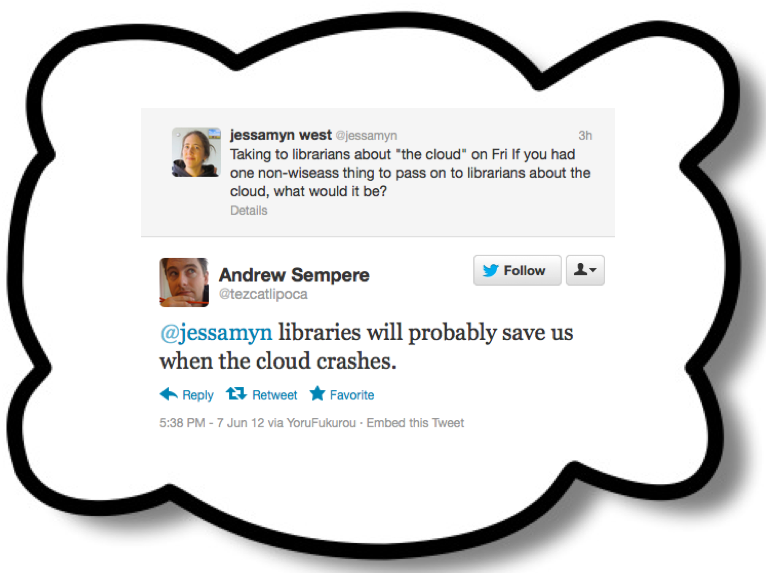


I have very little idea what it’s like on the presenters’ end, but I have “attended” several edweb.net Webinars live, and thone have went well and been useful. One of the librarians in my district presented one on grants for them, and had a good experience.
I am here to read this post. This is very good post i am glad that you have posted very good post to read. Delhi Escort